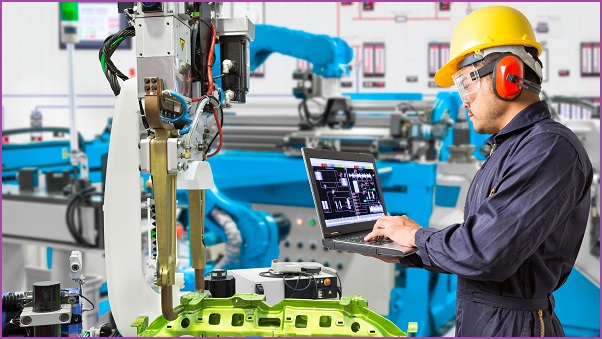In another pre-budget policy announcement, the government outlined its $1.5 billion Modern Manufacturing Strategy on Thursday.
“We make things in Australia. We do it well. We need to keep making things in Australia. And with this strategy, we will,” Prime Minister Morrison said in a statement.
“Our Modern Manufacturing Strategy is at the heart of our JobMaker plan. It starts with creating a stable and competitive business environment to grow our all parts of our manufacturing sector, but it does not end there.
“It will play to Australia’s strengths, improve collaboration and commercialisation, and create a sector that is modern, dynamic and highly skilled.”
Only nine per cent of Australia’s export economy comes from manufactured products with the vast majority – 62 per cent – derived from resources, according to the Reserve Bank.
The centrepiece of this pre-budget announcement is a $1.3 billion Modern Manufacturing Initiative which the opposition once again criticised for being a re-hash of previous government announcements.
The government first unveiled a Modern Manufacturing Fund in the run-up to the 2019 election – and officially announced it in September last year.
That $160 million scheme has since closed and offered grants between $50,000 and $1 million to businesses employing fewer than 200 people.
Now the government is committing $1.3 billion in funding for “large manufacturing projects” across six sectors: resources and minerals, food and beverage, medical products, recycling and clean energy, defence, and space.
There will be no business size requirements.
The Business Council of Australia welcomed the strategy with CEO Jennifer Westacott saying it would help boost country’s economic recovery.
“We are in the right part of the world with the right products and services at the right time but our economy won’t become stronger by doing nothing,” she said in a statement.
“This package will help businesses actively chase new markets, new investments and new opportunities so they can create the extra growth and jobs we need.
“It will also help us lock in the competitiveness of existing industries, such as agriculture and resources, where we have a competitive advantage and lead the rest of the world.”
Minister for Industry, Science, and Technology, Karen Andrews, said the plan was all about unlocking potential from manufacturing.
“By playing to our strengths, strategically investing and boosting the role of science and technology in industry, we can open up new markets and take more of our quality products to the world,” she said.
“This strategy sends a clear signal that not only is Australia open for business, but we mean business.”
Former Prime Minister, and recently appointed trade envoy, Tony Abbott declared Australia was “open for business” upon winning the 2013 federal election.
Abbott’s government then proceeded to oversee the end of automotive manufacturing in Australia when he pulled taxpayer funding from car makers like GM’s Holden.










